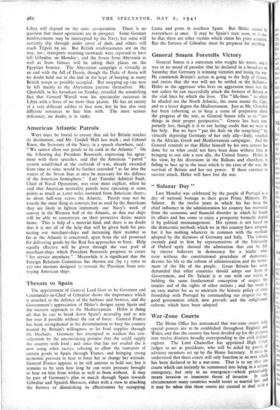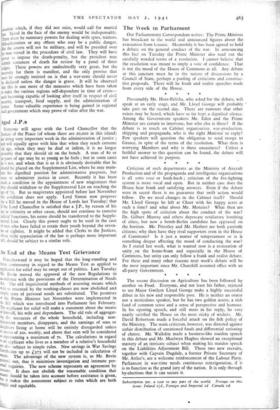War-Zone Courts
The Home Office has announced that war-zone courts with special powers are to be established throughout England and Wales, and that the country has been divided up for the purpose into twelve districts broadly corresponding to the civil defence regions. The Lord Chancellor has appointed High Court judges to act as presidents, who will be aided by panels of advisory members set up by the Home Secretary. It must be understood that these courts will only function in an area winch has been declared to be a war-zone. That is to say they are courts which can instantly be summoned into being in a serious emergency, but only in an emergency—which presumably means invasion or imminent threat of invasion. In such circumstances many countries would resort to martial law, and it may be taken that these courts are created to deal with a situation which, if they did not exist, would call-for martial lac Speed in the face of the enemy would be indispensable. There must be summary powers for dealing with spies, traitors, fifth-columnists or any others who may be a public danger. But the courts will not be military, and will be presided over ur men versed in the procedure of civil law. They will have power to impose the death-penalty, but the president may submit sentences of death for review by a panel of three judges. These powers are undoubtedly very great, but the necessity for them is manifest, and the only proviso that must be strongly insisted on is that a war-zone should never be declared unless the danger is grave. It will be observed that this is one more of the measures which have been taken to make the various regions self-dependent in time of crisis— each becoming capable of looking after itself in respect of civil security, transport, food supply, and the administration of justice. Some valuable experience is being gained in regional local government which may prove of value after the war.































 Previous page
Previous page